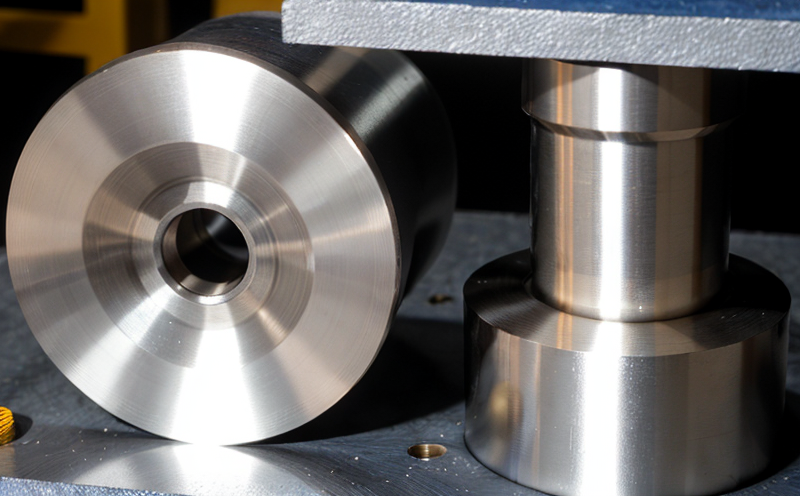DIN EN ISO 6892 Tensile Testing of Nanostructured Alloys
The DIN EN ISO 6892 standard provides a comprehensive framework for tensile testing, which is crucial for understanding the mechanical properties of materials. In this context, nanostructured metals and alloys present unique challenges due to their microstructural features at the nanoscale. This service focuses on applying these standardized methods specifically to nanostructured alloys, providing insights into their strength, ductility, and other essential characteristics.
Nanostructured metals and alloys are characterized by a high degree of refinement in grain size or atomic arrangement, leading to enhanced mechanical properties not seen in conventional materials. Tensile testing is one of the most fundamental methods for assessing these properties as it provides direct measurements of stress-strain behavior under uniaxial loading.
The process begins with careful selection and preparation of the specimen. For nanostructured alloys, this involves ensuring that the sample accurately represents the material's microstructure while minimizing any external factors such as surface contamination or defects that could skew results. Specimen preparation is critical because even small variations can significantly affect test outcomes.
Once prepared, the specimens are placed into a testing machine capable of applying controlled tensile loads. The instrument must be precise enough to measure minute changes in length and force accurately. Advanced systems often incorporate automated data acquisition capabilities to ensure consistent and reliable results over multiple tests.
The procedure itself typically involves gradually increasing the load until permanent deformation occurs, marking the yield point. Further increases lead to fracture, allowing for accurate determination of key parameters like tensile strength (the maximum stress before failure), elongation at break, and reduction in area. These values are then compared against established standards or historical data to evaluate compliance with specification requirements.
It's important to note that interpreting nanostructured materials requires specialized knowledge due to their distinct physical properties compared to macroscopic counterparts. Our team of experts ensures accurate interpretation by considering factors like grain boundaries, precipitates, and other microstructural elements that influence mechanical behavior.
The results from this testing are invaluable for quality assurance purposes but also support research and development activities aimed at improving existing materials or developing new ones with improved performance characteristics tailored to specific applications. By leveraging DIN EN ISO 6892 standards, we provide robust evidence supporting decisions made during product design, manufacturing processes optimization, and regulatory compliance efforts.
Why Choose This Test:
- Provides quantitative data on mechanical properties essential for quality assurance and R&D.
- Ensures consistency across different batches or samples through standardized procedures.
- Aids in identifying potential improvements needed to meet specific performance criteria.
Customer Impact and Satisfaction:
By offering this specialized service, we help our clients achieve higher levels of product reliability and innovation. Our expertise ensures that every test conducted adheres strictly to international standards, giving businesses confidence in their results and enhancing overall customer satisfaction.
Frequently Asked Questions
Our services in DIN EN ISO 6892 tensile testing of nanostructured alloys are widely accepted internationally. Compliance with these standards is crucial not only within Europe but also globally where international trade in metals and alloys plays a significant role. Many countries recognize the validity of tests conducted according to these guidelines, ensuring interoperability across borders.
- Detailed reports detailing test parameters, specimen preparation procedures, and results provide comprehensive documentation supporting compliance claims.
- Our laboratory adheres strictly to international standards, which enhances credibility and trustworthiness among stakeholders worldwide.
The acceptance of these tests extends beyond mere compliance; they play a vital role in fostering collaboration between industries and academic institutions. By sharing consistent results based on standardized methodologies, we contribute to advancements in knowledge about nanostructured materials.
Why Choose This Test
- Precision: Utilizing cutting-edge technology ensures accurate measurement of even the slightest variations in material properties.
- Compliance: Adherence to internationally recognized standards guarantees that results can be trusted and accepted by regulatory bodies globally.
- Innovation: Provides a platform for continuous improvement through detailed analysis and comparison against industry benchmarks.
Tensile testing of nanostructured alloys offers more than just compliance; it opens doors to new possibilities in material science, enabling the development of products with superior performance characteristics.





